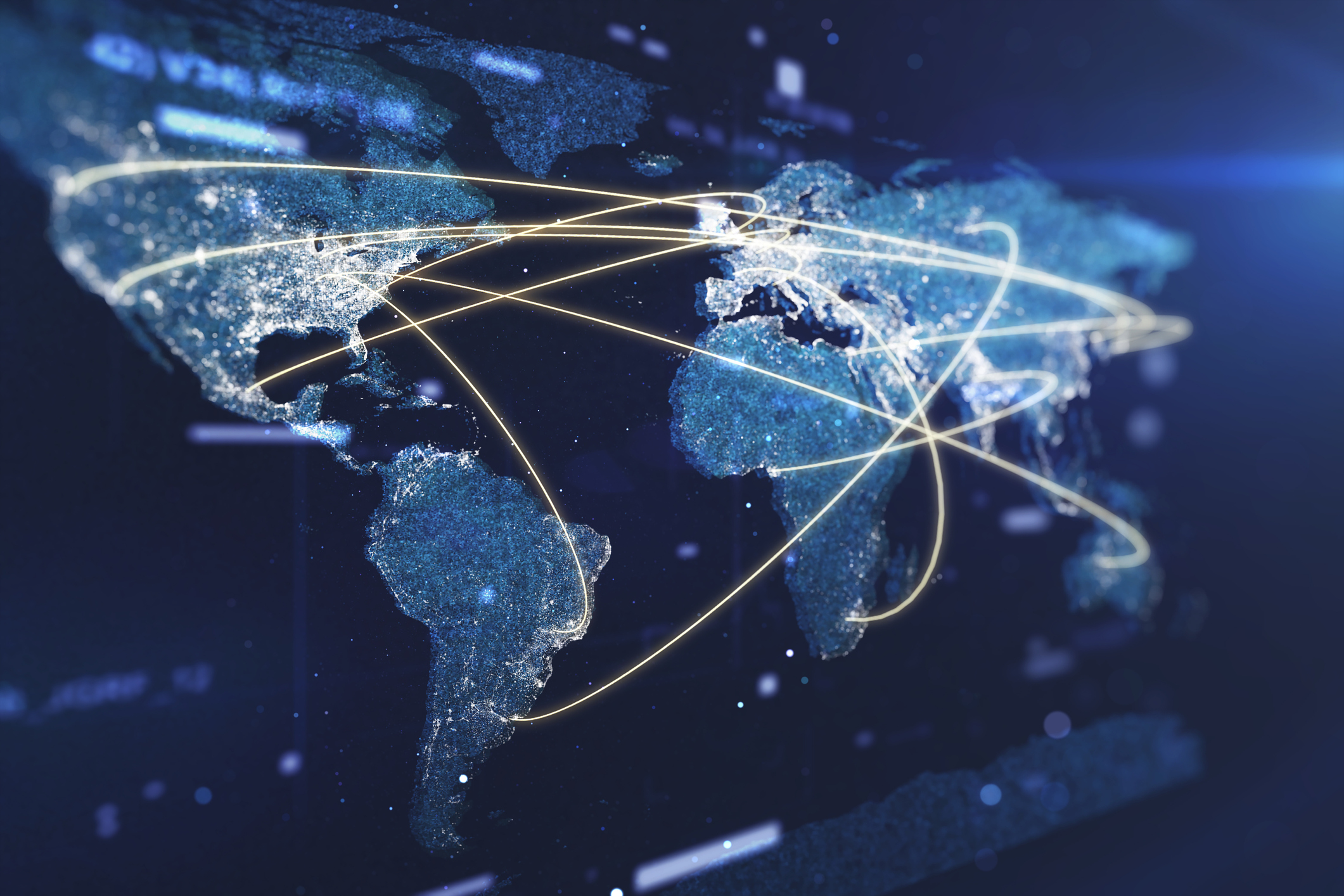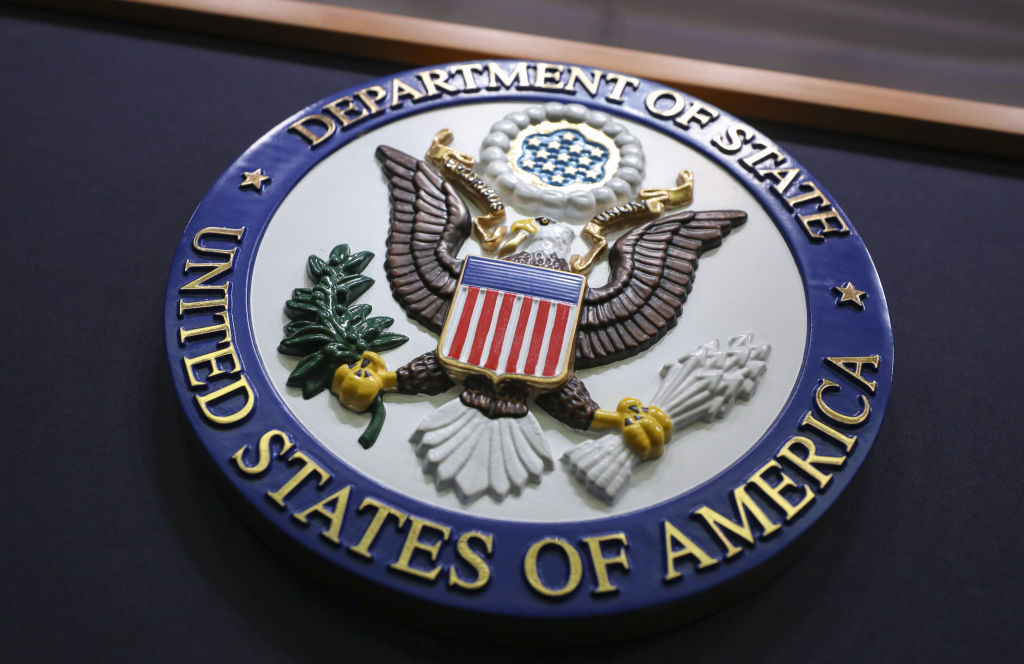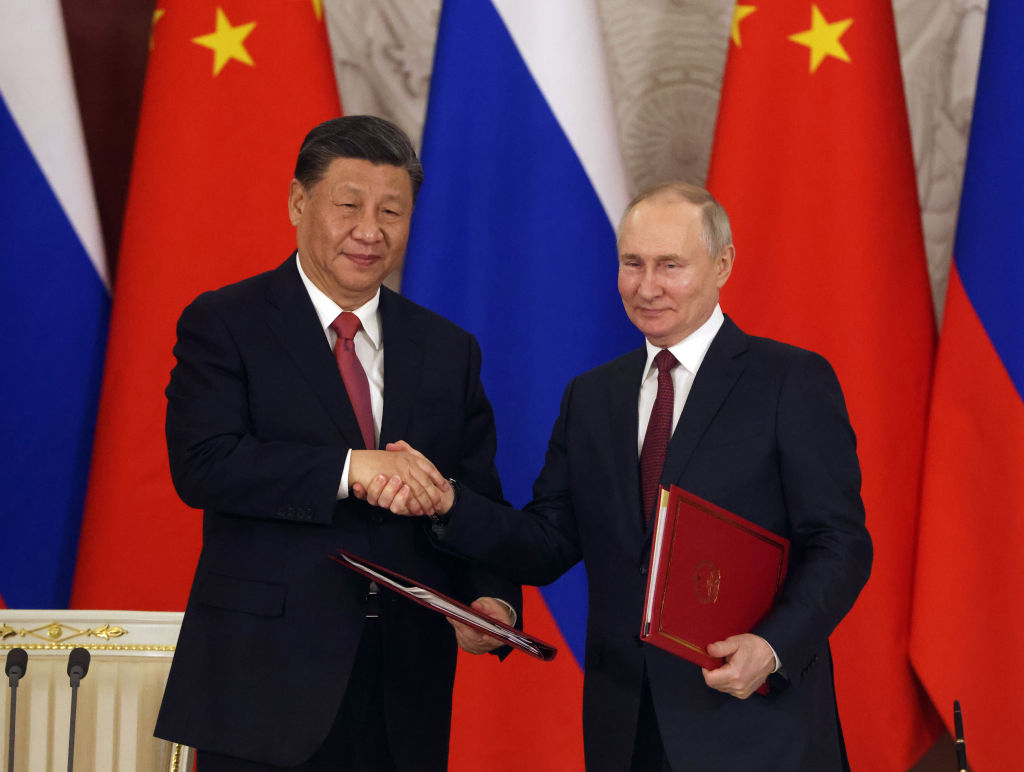The only lessons the Old World offers to America these days are cautionary.
Rethinking Globalization

America established the New World Order, and America can dismantle it.
This past week, the Central Bank of Argentina raised its key interest rate by six percentage points to 97 percent—for reference, the U.S. recently raised its key interest rate by 0.25 percentage points from 5 percent to 5.25 percent. This was to combat Argentina’s inflation rate which “soared above 100 percent last month.” Experts are doubtful whether this will tame inflation or boost foreign investment in the Argentinian economy; this nationalized usury will certainly make it even harder for businesses in the country to take out loans, retain their employees, and operate.
In related news, as of the time of this writing, President Biden seems more amenable to reaching a resolution with House Republicans on raising the debt ceiling. For a few months, he and other Democrats have accused Republicans of purposely jeopardizing the U.S. economy by even recommending any spending cuts. Considering how absurd this argument was and how modest the Republicans’ proposed cuts were, reason finally prevailed. Now, public spending will decrease slightly, and the deficit won’t grow quite as fast. This in turn may put marginally less pressure on bankers at the Federal Reserve to increase interest rates to combat inflation.
Most people in a globalized world have been conditioned to assume this is just the way the economy works. In order to boost economic activity, governments will spend money and/or have their central bank print money and lower interest rates. Sure enough, businesses proliferate and grow in this environment, but not enough to keep up with consumer demand, which causes prices to rise and the value of money to decline (i.e., inflation). Consequently, governments will usually cut spending and/or stop printing money and compensate banks with higher interest rates on loans. Or they may do nothing, leading to skyrocketing inflation as in Argentina or drive up debt to unimaginable levels as in Japan or the United States.
But what if this thinking misses the forest for the trees? What if we’re grossly overestimating the power and wisdom of governments and central bankers? What if economic failures are more the symptoms of an unsustainable globalized market than the actions of any one individual or institution?
As political strategist Peter Zeihan explores in his book The End of the World Is Just the Beginning, so much of what determines the world economy is a vast and complex global system instituted and maintained by the United States after World War II. To ensure world peace as well as counteract the spread of communism, the Americans became the world police securing trade routes, facilitating mass production, and developing a global network that would maximize the comparative advantages of every possible country in the world. Zeihan calls this whole arrangement “the Order.”
Zeihan explains how the Order has allowed nations across the world to industrialize at a breakneck pace and thus contribute to global trade. Not only did this allow formerly impoverished countries like South Korea or Japan to join the developed world and compete economically, but it also enabled countries with bad geographies and dysfunctional governments, like China and India, to play key roles in the global economy. So long as such countries could import everything they needed, they could continue generating wealth for global enterprises—either in the form of cheap, unregulated labor (as in China or India) or highly specialized technical labor (as in Japan and South Korea).
Even though this has been a massive boon for the Third World, it has also been a massive burden to the U.S. As Zeihan admits, “The core precept of the Order is that the Unites States would sacrifice economic dynamism in order to achieve security control. The American market was supposed to be sacrificed. The American worker was supposed to be sacrificed. American companies were supposed to be sacrificed.” Instead of Americans innovating and producing goods and services for other Americans, so much of this work was either outsourced to other countries or reserved for low-wage immigrants. True, Americans would largely lead, manage, and invest in these companies—and become hyper wealthy in the process—but everyone below this class of people would essentially be competing for the scraps.
Chris Buskirk documents this hollowing out of America in detail in his book America and the Art of the Possible. He demonstrates that the American economy has substituted a solid economy consisting of manufacturing, agriculture, and civil service for a financialized economy incentivizing rent-seeking, fraud, and the proliferation of “bullsh** jobs.” Instead of seeking honest work that would contribute to the wellbeing of their communities, today’s young adults seek useless degrees to qualify for useless work that contributes to their individual wellbeing. They may be making the same wages as their parents and grandparents, but at least they will have access to (often inferior) imports from all around the world, thanks to the Order.
However, as Zeihan points out, the Order is not sustainable, nor is it likely to last in current form for much longer. Many nations that were brought out of poverty, particularly those in East Asia and Europe, are now experiencing a demographic crunch. Because their populations are aging, they will struggle keeping up with the Order. Not only will their workforce shrink, but the collapse of industries and the mounting burden of retirees will precipitate widespread social and political chaos. For countries like China which owe their whole existence to the Order, deglobalization will be an unmitigated disaster.
For countries like the United States, it will only be a disaster for those elites who depend on the Order for their outsized success and influence. For every other American, deglobalization will be an opportunity. Manufacturing will be reshored, agriculture will be diversified, finance will be decentralized, wealth will be more evenly distributed, energy will be cleaner and cheaper, and the culture overall will flourish. No longer will the majority of Americans be taught to fit into a global system that relegates them to making spreadsheets and TikTok videos. They will finally be able to engage with the physical world on a human scale and enjoy the blessings of a free and dynamic American economy. It’s worth noting that Donald Trump’s popularity among the working class and infamy among elites and their allies is precisely because he pushes this vision.
Until then, governments and central bankers will continue the vicious cycle of spending public money, inflating currency, and raising interest rates—all to preserve an Order which is slowly disintegrating. What’s ironic is that both Argentina and the United States have amazing geographies that would make them two of the most prosperous countries on earth. Unfortunately, the Order has respectively turned one into a poor dysfunctional state and set the other on the same path.
Rather than cheer on or tacitly comply with this outcome, Americans should reconsider the terms of a deal that none of them ever made. No one has to be a mindless consumer or a paper pusher. They can become empowered citizens who are part of a great country with limitless potential. As for the rest of the world, they can follow the lead of the U.S., living within their means, embracing an agenda of freedom and virtue, acknowledging borders and national sovereignty, and becoming peaceful members of the post-Order global community.
The American Mind presents a range of perspectives. Views are writers’ own and do not necessarily represent those of The Claremont Institute.
The American Mind is a publication of the Claremont Institute, a non-profit 501(c)(3) organization, dedicated to restoring the principles of the American Founding to their rightful, preeminent authority in our national life. Interested in supporting our work? Gifts to the Claremont Institute are tax-deductible.
Progressive opposition to Israel’s military operation is rooted in racism and antisemitism.
How to understand—and rectify—the foreign policy disaster of 2024.
The way to fix our diet is simple—but it won’t be easy.
The U.S. is rapidly liquidating its position as the world’s foremost superpower.
The conclusion of a report from the Southern border.






